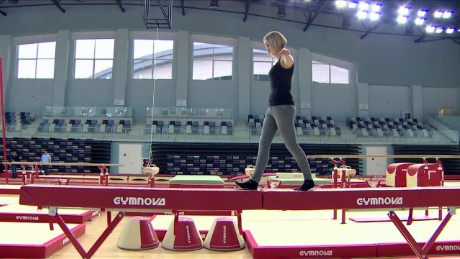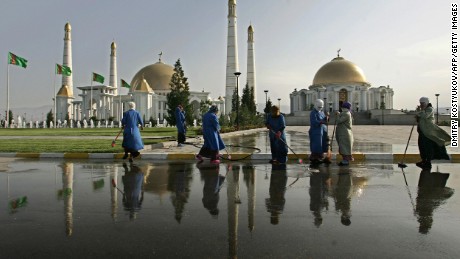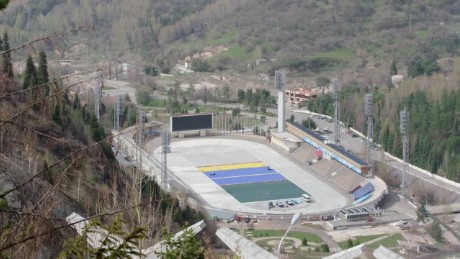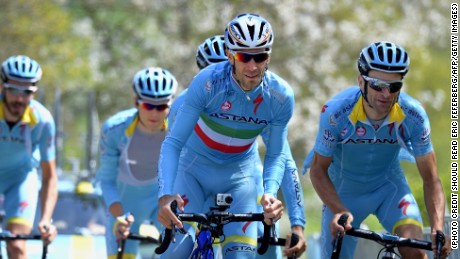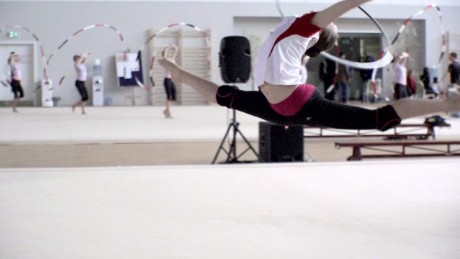
Sport’s new frontier: former Soviet states want a ticket to the big league – CNN International
(CNN)You can see why they would want to get past Borat.
Comedian Sacha Baron Cohen’s portrayal of the unapologetically bigoted character has dogged Kazakhstan for a decade.
Why? There are two reasons: one, many people think Borat is funny. And two, most don’t know much else about Kazakhstan. Borat fills the void.
Small wonder Kazakhstan, and other former Soviet republics, are desperate to redefine themselves with something big. What could be bigger than hosting the Olympics, or the World Cup?
Kazakhstan wants the 2022 Winter Olympics and has turned Astana, its capital city, into a sporting brand (albeit one marred by the doping controversies that follow its Astana pro cycling team).
Azerbaijan is hosting this summer’s European Games, has a Formula One grand prix coming up, and is expected to try for the Summer Olympics in 2024.
Then there’s Turkmenistan, a nation so repressive and secretive that it ranks on a par with North Korea, which is also embracing international sport.
Talk to these countries’ politicians and they paint a picture of newborn nations, rising from Soviet ruins with young, sports-hungry populations.
“[We want to] position our country on the map of the world, to show how, 23 years after regaining our independence, we can achieve huge success,” Azerbaijan’s sports minister, Azad Rahimov, told CNN.
“It’s inspiring young people, of course. We have 66% of the population under the age of 35, and a lot of them are involved with sport.”
There are business opportunities to be had, too. While money from oil and gas lasts, spending it on a global showpiece or two buys a potentially lucrative shop window to millions of eyeballs.
‘Closed and repressive’
Yet some observers say this is purely power and prestige — decades-old regimes legitimizing oppression with the help of sport’s biggest events.
“Sports mega-events are among the most prestigious,” said Rachel Denber, deputy director of Human Rights Watch.
“Sport appeals to all people everywhere, so it naturally draws the biggest audiences — television audiences, government audiences — across the board.
“All three are countries rich in hydrocarbon resources, so many people in government, or close to the government, have gotten very rich, very fast. I think they’re eager to do whatever it takes to stay in power.”
Beyond this new fascination with sport, Denber says that can also mean ignoring citizens’ human rights.
“Turkmenistan is one of the most closed and repressive countries in the world. There is no freedom of expression, there is no freedom of religion — basic human freedoms are simply not respected,” she told CNN.
“In Azerbaijan, we’ve actually seen significant regression in recent years. The past year, I would argue, has been the worst on record for human rights in Azerbaijan since the breakup of the Soviet Union.”
Yet sport is designed to open up nations.
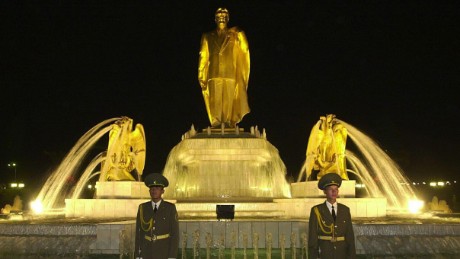
In the past, when awarding events to the likes of Russia, China, and Qatar, governing bodies like the International Olympic Committee (IOC) and FIFA claimed sport would help improve human rights.
IOC President Thomas Bach insists he understands what is at stake when it comes to choosing which nation hosts the Games.
“Our actions, our decisions, have political implications,” Bach acknowledged.
“The role of the IOC is to ensure that during the Games, and for all participants, the [107-page] Olympic Charter applies.
“It means tolerance, no discrimination, understanding dialogue.”
Which, in turn, means the IOC might hope it had a lasting effect on China after the Beijing 2008 Olympics. Not so, says Denber.
“Many people argued that just the very fact of China hosting an Olympics, and opening itself up to the world, would naturally have a knock-on positive effect on human rights,” she said.
“That was not the case. In fact, there was a huge crackdown in China leading up to and following the Olympics, and that has continued to this day.”
Host nations now face more scrutiny than ever before.
Azeri officials point out that even London Olympics in 2012, widely considered a successful event, experienced years of negative media coverage — so why should anyone be surprised if Azerbaijan has its critics?
Tools of change
We will soon sample the willingness of bodies like the IOC to hand over major events to former Soviet republics, and the ability of those nations to withstand the resultant spotlight on their internal affairs.
On July 31, Kazakhstan discovers the fate of its bid to host the 2022 Winter Olympics. Its only rival is China. Whose vision will the IOC’s members back?
Before that, Azerbaijan hosts the first-ever European Games in June. What image will its capital, Baku, present to the world? What coverage will be given to the alleged wrongful imprisonment of dozens of journalists and campaigners?
And which events, one day, will fill the many, resplendent venues of Turkmenistan?
This nation of five million people has spent years constructing state-of-the-art sports facilities with money from natural gas. The finest example? A new velodrome in Ashgabat, the nation’s capital city of white marble — “where Las Vegas meets Pyongyang” as one travel writer put it.
Yet the only event on Turkmenistan’s horizon, for now, is the 2017 Asian Indoor and Martial Arts Games.
“This is a country where lots of citizens live in fear, despite the president declaring an ‘era of happiness’ by decree,” said David Diaz-Jogeix, who represents Article 19, an organization defending freedom of expression worldwide.
When CNN visited Turkmenistan, sports officials staged a short press conference for the first time anyone could remember — declaring that a symbol of increasing openness to the world. Diaz-Jogeix is not convinced.
“A couple of token changes in the legislation have been presented [as a sign] they are going in the right direction,” he said.
A full edition of the Asian Games is said to be next on Turkmenistan’s list and there’s talk of a future Olympic bid.
Wei Jizhong represents the Olympic Council of Asia, which gave Turkmenistan the Indoor Games and may yet grant the nation a future Asian Games.
“Democracy, human rights — in different countries, they have a different interpretation,” he said.
“In Turkmenistan, the people are satisfied … because they get everything from the government.
“For me, the most valuable change is the mentality of the people. We have to go step by step, and use means the people can accept. Sport is an ideal tool.”
Sport, for Azerbaijan, Kazakhstan, and Turkmenistan, is a tool to change mentalities worldwide, not just at home.
Moreover, CNN encountered a genuine belief, particularly among young athletes in those nations, that sport will change citizens’ lives for the better.
However, critics remain to be convinced that these nations can wield the sporting spotlight effectively, without resorting to darker tools in the armory.

